
Margetuximab, trastuzumab deruxtecan, and tucatinib have all been approved in the past 2 years for the treatment of various subsets of patients with breast cancer.

Margetuximab, trastuzumab deruxtecan, and tucatinib have all been approved in the past 2 years for the treatment of various subsets of patients with breast cancer.

Jonathan Spicer, MD, medical director of the McGill University Health Center Thoracic Oncology Network, discusses what is still needed to be investigated in the future following the phase 3 trial assessing nivolumab plus platinum-doublet chemotherapy as neoadjuvant treatment for resectable non-small cell lung cancer.

Jonathan Spicer, MD, medical director of the McGill University Health Center Thoracic Oncology Network, discusses what some of the most important findings were in regard to patient outcomes from the phase 3 trial assessing nivolumab plus platinum-doublet chemotherapy for resectable non-small cell lung cancer.

Jonathan Spicer, MD, medical director of the McGill University Health Center Thoracic Oncology Network, discusses findings regarding adverse events during the phase 3 trial assessing nivolumab plus platinum-doublet chemotherapy as neoadjuvant treatment for resectable non-small cell lung cancer.

Jonathan Spicer, MD, medical director of the McGill University Health Center Thoracic Oncology Network, discusses what the findings of the phase 3 CheckMate 816 trial assessing nivolumab plus platinum-doublet chemotherapy as neoadjuvant treatment for patients with resectable non-small cell lung cancer may mean for future treatment options.

Jonathan Spicer, MD, medical director of the McGill University Health Center Thoracic Oncology Network, discusses his presentation on surgical outcomes from the phase 3 CheckMate 816 trial assessing nivolumab plus platinum-doublet chemotherapy as neoadjuvant treatment for patients with resectable non-small cell lung cancer.
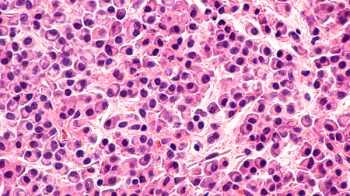
ibrutinib (Imbruvica) plus venetoclax (Venclexta) shows complete response and complete response with incomplete bone marrow recovery rate of 56% among patients with chronic lymphocytic leukemia and small lymphocytic lymphoma.

If it were to be approved now, the drug would be used in patients with metastatic castration-resistant prostate cancer who have progressed on an androgen receptor-directed therapy and 1 to 2 taxane-based chemotherapeutics.
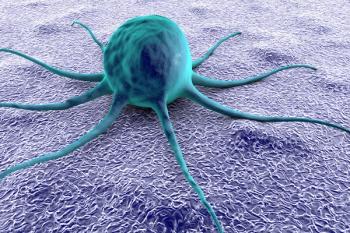
Jonathan Strosberg, MD, section head of the Neuroendocrine Tumor Program and vice president of Medical Oncology at the Moffitt Cancer Center, discusses the overall impact of the research assessing lutetium Lu 177 dotatate for midgut neuroendocrine tumors.

Venetoclax (Venclexta) plus fulvestrant (Faslodex) did not provide superior outcomes compared to fulvestrant monotherapy among patients with locally advanced or metastatic ER–positive, HER2-negative breast cancer.
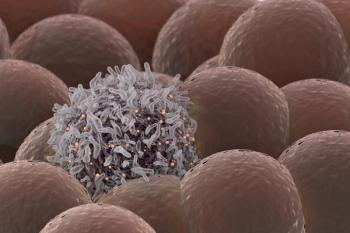
Jonathan Strosberg, MD, section head of the Neuroendocrine Tumor Program and vice president of Medical Oncology at the Moffitt Cancer Center, discusses patients reports of their quality of life while being treated with lutetium Lu 177 dotatate for midgut neuroendocrine tumors.
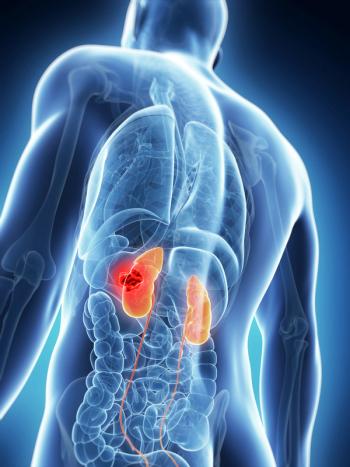
Andrea Apolo, MD, a Lasker clinical research scholar and head of the Bladder Cancer Section at the National Cancer Institute, explained how results from the phase 3 trial could change the treatment opportunities for patients with aRCC, as well as the treatment landscape more broadly.

The investigative therapy targets a specific molecule that is generally only expressed on the prostate cancer cell, according to a recent interview.

Jonathan Strosberg, MD, section head of the Neuroendocrine Tumor Program and vice president of Medical Oncology at the Moffitt Cancer Center, discusses some of the adverse events patients experienced during the phase 3 trial assessing lutetium Lu 177 dotatate for midgut neuroendocrine tumors.

Medical oncologist Michael Morris, MD, discussed the newest findings of the phase 3 VISION trial, which is investigating the use of 177Lu-PSMA-617 in patients with advanced prostate cancer.

Jonathan Strosberg, MD, section head of the Neuroendocrine Tumor Program and vice president of Medical Oncology at the Moffitt Cancer Center, discusses the methods used during the phase 3 trial to assess lutetium Lu 177 dotatate for midgut neuroendocrine tumors.

Andrea Apolo, MD, a Lasker clinical research scholar and head of the Bladder Cancer Section at the National Cancer Institute, explained what patients with aRCC who were given either nivolumab plus cabozantinib or sunitinib reported in regard to their quality of life during treatment.

Notably, the investigative treatment avoids many of the severe adverse effects common in traditional therapies.

Bemarituzumab is an investigational, potential first-in-class targeted antibody designed to block specific fibroblast growth factors from binding and activating FGFR2b.

Research has also shown activity with sacituzumab govitecan in subsets of patients with triple-negative breast cancer, such as those with active brain metastases.

The use of 177Lu-PSMA-617 resulted in a 60% reduction in radiographic progression or death among patients with advanced prostate cancer.

Jonathan Strosberg, MD, section head of the Neuroendocrine Tumor Program and vice president of Medical Oncology at the Moffitt Cancer Center, discusses the efficacy and safety of lutetium Lu 177 dotatate for midgut neuroendocrine tumors.
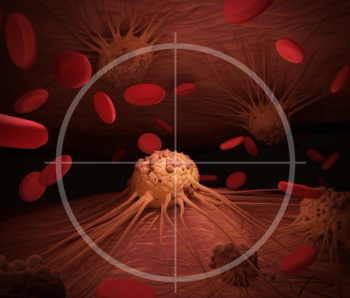
In PD-L1-positive patients, tislelizumab improved median overall survival by 3.5 months with a 46% decrease in the risk of death compared with chemotherapy.

Jonathan Strosberg, MD, section head of the Neuroendocrine Tumor Program and vice president of Medical Oncology at the Moffitt Cancer Center, gives an overview of the phase 3 trial assessing lutetium Lu 177 dotatate for midgut neuroendocrine tumors.

New research presented at the American Society of Clinical Oncology 2021 annual meeting has found encouraging results with the use of 177Lu-PSMA-617 in patients with advanced prostate cancer.

Andrea Apolo, MD, a Lasker clinical research scholar and head of the Bladder Cancer Section at the National Cancer Institute, detailed some of the AEs experienced by patients with aRCC who were given either nivolumab plus cabozantinib or sunitinib.

Results from the phase 3 TITAN study shows a combination therapy that includes apalutamide may achieve survival benefit without significant burden of adverse effects.
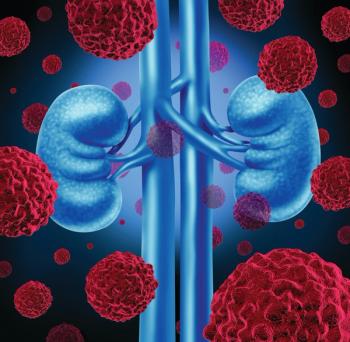
Andrea Apolo, MD, a Lasker clinical research scholar and head of the Bladder Cancer Section at the National Cancer Institute, explained how the phase 3 CheckMate 9ER trial was conducted in order to assess the outcomes by baseline disease characteristics for patients with aRCC.

Andrea Apolo, MD, a Lasker clinical research scholar and head of the Bladder Cancer Section at the National Cancer Institute, discusses her presentation on nivolumab plus cabozantinib versus sunitinib for aRCC.

Frequent prostate-specific antigen screenings may lower the risk of metastasis at the time of diagnosis and lower mortality risk from prostate cancer among younger African American men.